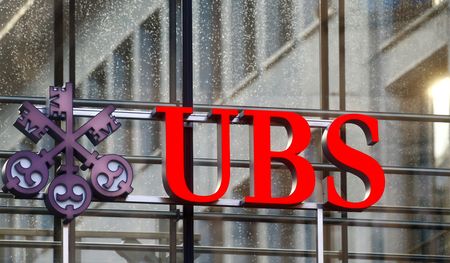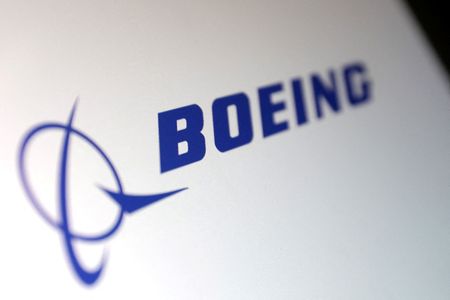By Ariane Luthi
ZURICH (Reuters) – UBS shares sank on Tuesday after its CEO warned again about the negative impact of new Swiss capital rules and the bank said its buyback plans hinged on no major changes to them.
Shares in Switzerland’s largest bank initially rose after its fourth quarter profit beat forecasts, but then fell by as much as 6% as other bank stock prices rose, putting them on course for their biggest one-day drop in six months.
Analysts said considerable expectation was built into the price of UBS shares, which are up by more than 80% since it bought its rival Credit Suisse in a 2023 emergency takeover.
UBS, which has made progress in integrating its former rival, said it plans to buy back $1 billion of shares in the first half of 2025 and up to $2 billion in the second, if there are no “material and immediate changes” to Swiss capital rules.
Swiss authorities have pledged to draw up stricter banking regulations, at the centre of which are plans to make UBS hold more capital, to prevent a repeat of Credit Suisse’s meltdown.
With a government proposal to be published in May, it is not yet clear how much that will be.
UBS says existing capital requirements are appropriate and its CEO Sergio Ermotti urged Switzerland not to saddle the bank with capital requirements that could hurt shareholder returns.
“Offsetting the consequences of higher requirements would make us uncompetitive domestically and abroad, hamper our ability to help clients grow, and importantly, make banking services more expensive for Swiss families and enterprises in the long run,” he said during a call with analysts.
He told a media call that “experiments” in raising regulatory requirements were ill-advised when U.S. banks were benefiting from greater clarity and less demanding rules.
Statements by UBS management had dampened the mood, said Maurizio Porfiri, chief investment officer at trading firm Maverix, adding: “According to these statements, future profits could increasingly be held back for regulatory requirements”.
UBS posted net profit attributable to shareholders of $770 million, its fourth consecutive quarter of profit and far exceeding an average estimate of $483 million in a company-provided poll, thanks to lower-than-expected costs, robust revenue and a strong performance by its investment bank.
The Zurich-based bank said it was on track on planned cost savings, but raised its forecast for integration-related expenses to $14 billion by the end of 2026, from $13 billion.
INTEGRATION
UBS’ total revenues rose 7% to $11.6 billion year-on-year, versus a bank-provided consensus forecast of $11.5 billion.
The bank said it would maintain its target common equity tier 1 capital (CET1) ratio of around 14%.
While analysts at Bank Vontobel praised “good cost management”, those at Citi noted overall cost saving and cost-income guidance through end-2026 remained unchanged and gave a neutral rating.
“On balance a decent set of results, but perhaps not as good as at first glance,” Citi analysts wrote.
Net new assets attracted in global wealth management during the quarter amounted to $18 billion, missing a forecast of $21 billion from Zuercher Kantonalbank analysts.
Ermotti said last week that migrating Credit Suisse clients to its IT system was going well, but that it would remain a major focal point for the next year.
(Reporting by Ariane Luthi in Zurich; Additional reporting by Oliver Hirt in Zurich and Tommy Reggiori Wilkes in London; Editing by Dave Graham, Edwina Gibbs, Bernadette Baum and Alexander Smith)










